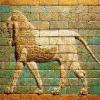First, allow me to please introduce the primary source of evidence, Proceedings of the National Academy of Sciences (PNAS):
Here is what appears to be accurate information as of July 30, 2007:
The Proceedings of the National Academy of Sciences of the United States of America, usually referred to as PNAS, is the official journal of the United States National Academy of Sciences. PNAS is an important scientific journal that printed its first issue in 1915 and continues to publish cutting-edge research reports, commentaries,[1] reviews,[2] perspectives,[3] colloquium papers,[4] and actions of the Academy.[5] Coverage in PNAS spans the biological, physical, and social sciences. Although most of the papers published in the journal are in the biomedical sciences, PNAS recruits papers and publishes special features in the physical and social sciences and in mathematics.[6] PNAS (abbreviated Proc Natl Acad Sci USA for referencing and indexing purposes) is published weekly in print, and daily online in PNAS Early Edition.[7]
Impact
PNAS is widely read by researchers, particularly those involved in basic sciences, around the world. The journal is notable for its policy of making research articles freely available online to everyone 6 months after publication (delayed open access), or immediately if authors have chosen the "open access" option (hybrid open access). Immediately free online access (without the 6-month delay) is provided for 144 developing countries and for some categories of papers such as colloquia. Abstracts, tables of contents, and online supporting information are free. Anyone can sign up to receive free tables of contents by email.[8]
Because PNAS is self-sustaining and receives no direct funding from the government or the National Academy of Sciences, the journal charges authors publication fees to help offset the cost of the editorial and publication process.
The journal's impact factor for 2004 was 10.452, for 2005 was 10.231, and 2006 was 9.643 (as measured by Thomson ISI). PNAS is the second most cited scientific journal with 1,338,191 citations from 1994-2004 (the Journal of Biological Chemistry is the most cited journal over this period with 1,740,902 citations in total).
I think it appears that PNAS is a scientific journal rather than a medical journal. I don't think that implies anything either way regarding the integrity of the information; and impact factor (a measurement of citation frequency) is considered a "punative marker of journal quality" (1).
Anyways, here's the abstract:
Published online before print July 30, 2007
Proc. Natl. Acad. Sci. USA, 10.1073/pnas.0705839104
Pharmacology
Voluntary exercise together with oral caffeine markedly stimulates UVB light-induced apoptosis and decreases tissue fat in SKH-1 mice
Yao-Ping Lu *, Bonnie Nolan , You-Rong Lou *, Qing-Yun Peng *, George C. Wagner , and Allan H. Conney *
*Susan Lehman Cullman Laboratory for Cancer Research, Department of Chemical Biology, Ernest Mario School of Pharmacy, Department of Neuroscience, and Department of Psychology, Rutgers, the State University of New Jersey, Piscataway, NJ 08854
Contributed by Allan H. Conney, June 21, 2007 (sent for review April 17, 2007)
Treatment of SKH-1 mice orally with caffeine (0.1 mg/ml in the drinking water), voluntary running wheel exercise, or a combination of caffeine and exercise for 2 weeks (i) decreased the weight of the parametrial fat pads by 35, 62, and 77%, respectively; (ii) decreased the thickness of the dermal fat layer by 38, 42, and 68%, respectively; (iii) stimulated the formation of UVB-induced apoptotic sunburn cells in the epidermis by 96, 120, and 376%, respectively; and (iv) stimulated the formation of UVB-induced caspase 3 (active form)-positive cells in the epidermis by 92, 120, and 389%, respectively (average of two experiments). Oral administration of caffeine (0.4 mg/ml in the drinking water) in combination with voluntary exercise was less effective than administration of the low dose of caffeine in combination with exercise in stimulating UVB-induced apoptosis. Although orally administrated caffeine (0.1 mg/ml in the drinking water) or voluntary exercise for 2 weeks caused only a small nonsignificant stimulation of UVB-induced increase in the percentage of phospho-p53 (Ser-15)-positive cells in the epidermis (27 or 18%, respectively), the combination of the two treatments enhanced the UVB-induced increase in phospho-p53 (Ser-15)-positive cells by 99%. The plasma concentration of caffeine in mice ingesting caffeine (0.1-0.4 mg/ml drinking water) is similar to that in the plasma of most coffee drinkers (one to four cups per day). Our studies indicate a greater than additive stimulatory effect of combined voluntary exercise and oral administration of a low dose of caffeine on UVB-induced apoptosis.
Author contributions: Y-P.L., G.C.W., and A.H.C. designed research; Y-P.L., B.N., Y-R.L., and Q-Y.P. performed research; Y-P.L., G.C.W., and A.H.C. analyzed data; and Y-P.L. and A.H.C. wrote the paper.
The authors declare no conflict of interest.
To whom correspondence should be addressed at: Susan Lehman Cullman Laboratory for Cancer Research, Department of Chemical Biology, Ernest Mario School of Pharmacy, Rutgers, the State University of New Jersey, 164 Frelinghuysen Road, Piscataway, NJ 08854-8020.
Allan H. Conney, E-mail: aconney@rci.rutgers.edu
www.pnas.org/cgi/doi/10.1073/pnas.0705839104
Click here for a definition of apoptosis.
For a "mainstream" take on this story, click here to read: "CBC News: Caffeine and exercise may help prevent skin cancer." That's where I got the title from.
Thoughts or comments?
Take care.













































